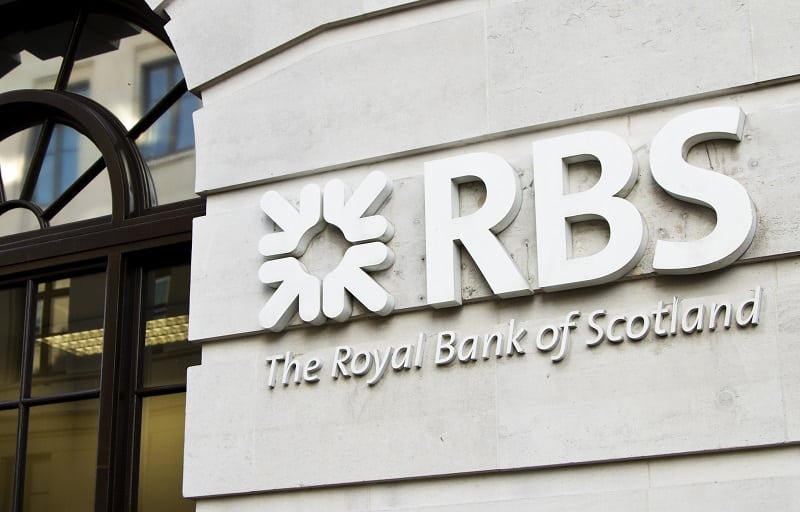The report, made public on Tuesday afternoon at the behest of the Treasury Select Committee (TSC), confirmed that one out of six (roughly 16%) of SME business owners in its restructuring arm, received “inappropriate treatment” which caused “material financial distress”, contradicting the bank’s claim that this behaviour was limited to a few individuals.
The news comes days before RBS is due to release its final results. The FTSE 100 bank’s share price closed only slightly lower on Tuesday, down 0.40% at 274.5p per share. While shares spiked initially the following morning, they were back down at 274.8p by mid-morning.
The unredacted report follows the release of the “Just Hit Budget!” memo, made public last month, which hinted at the systematic nature of the bank’s seedy tactics toward struggling small business owners. The memo, written in 2009, revealed how RBS staff were encouraged to “let customers hang themselves”, called “basket case” clients “time consuming but remunerative” and reinforced “missed opportunities mean missed bonuses”.
In turning the internal letter over to the TSC, RBS chief executive Ross McEwan stressed that the note was penned by a junior manager who no longer works for the bank.
The report “shines a light on the gruesome culture within GRG in its dealing with RBS business customers,” commented Laith Khalaf, senior analyst at Hargreaves Lansdown. “It paints a very sorry picture of the excesses of the banking industry during the financial crisis and in its aftermath.”
However, the report stressed that not all the allegations made by government adviser Lawrence Tomlinson, which sparked a Financial Conduct Authority investigation three years ago, were valid.
Tomlinson accused RBS of treating its GRG unit, designed to help struggling businesses in the aftermath of the global financial crisis, as its own personal profit centre, referring businesses solely for the purpose of generating revenue through excessive fees and interest rate payments.
He also alleged that the presence of global head of GRG, Derek Sach, on the acquisition committee of the bank’s property arm West Register was a clear conflict of interest.
The report “did not find that defaults were engineered to transfer businesses to GRG simply to generate revenue for RBS through fees, increase margins and the acquisition of undervalued assets”.
“But, equally importantly, overall we did find that RBS’s SME customers were poorly served by GRG.”
Specifically, it said that GRG failed to place appropriate weight on turnaround options for customers, did not explain pricing decisions following transfer to the restructuring arm, did not make “appropriate and robust valuations” and failed to identify customer complaints and handle them fairly.
The report prepared for the FCA also supports Tomlinson’s claim that there were “fundamental conflicts between the underlying objectives of GRG” and that its management failed to address any conflicts of interest with other areas within the bank, including the West Register unit.
Though “misconduct has been a significant millstone for the banking industry and its customers”, the current sector is “more sober than it was, and while misconduct still does occur, the most egregious transgressions look to be in the rear view mirror,” added Khalaf.
“Those past misdemeanours are nonetheless still causing problems, with RBS currently bracing for a multi-billion dollar fine from the US Department of Justice. Once this lands however, RBS will have put to bed many of the most significant legacy issues that have dogged the bank since the financial crisis and can start to focus more on the future.”
RBS will publish its final figures for 2017 on 23 February, rounding out a week of bank results.











